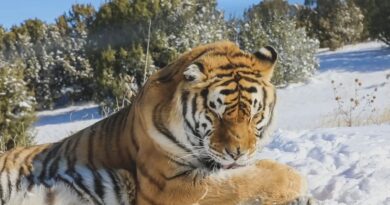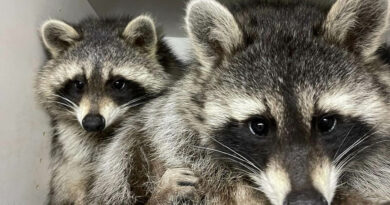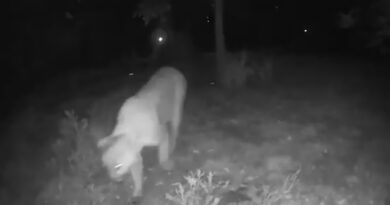Inspiring Moment British Sea Turtle That Expelled Over 10 Different Types Of Plastic Is Returned To Sea
This is the inspiring moment a British sea turtle that made international headlines by expelling over 10 different types of plastic is finally released back into the wild together with five other rescued sea turtles.
The six sea turtles, which included two green turtles and four loggerhead turtles, were all taken in to be treated after they were found caught in fishing nets, which had left them weakened.
In addition to being trapped in the fishing nets, three of them were found to have plastic in their digestive system, which they later expelled, including the turtle that made international headlines by expelling over 10 different types of plastic.
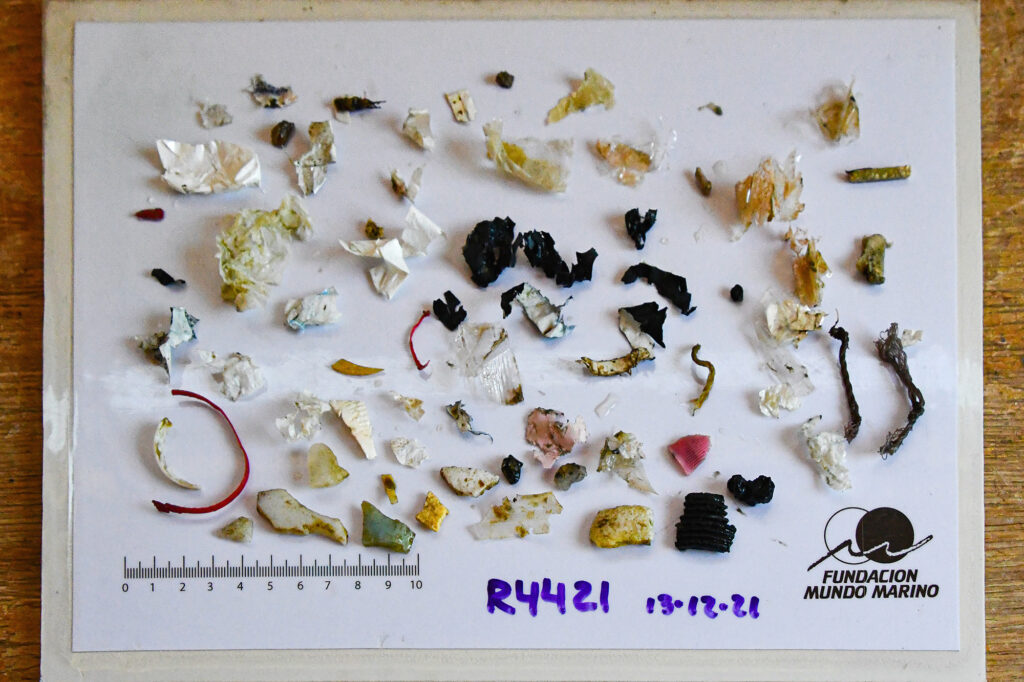
The juvenile green sea turtle, which is 35 centimetres (14 inches) long, was rescued a month ago and taken to the rescue and rehabilitation centre of the Mundo Marino Foundation in the coastal town of San Clemente del Tuyu in the Argentine province of Buenos Aires, where the other five sea turtles were also rescued.
Despite appearing in good health when it arrived at the centre, it immediately began to defecate an alarming amount of manmade waste, among which over 10 different types of plastic could be found.
A photograph shows fragments of plastic lids, hosepipe, nets, polystyrene, sachets, nylon, plastic seals, cellophane and other unidentified plastics, all of which were found among the turtle’s excrement.
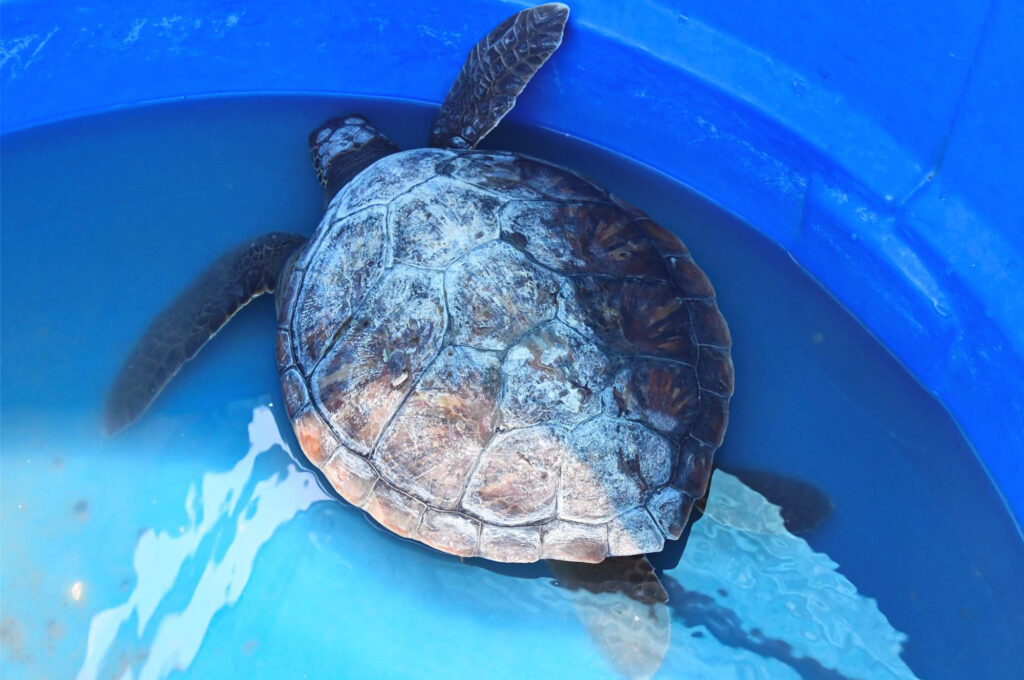
Vet Mauro Pergazere had told Newsflash at the time: “We observed that it still had foreign bodies both in its stomach and in the final part of its digestive tract, so it will probably continue expelling garbage in the coming days.”
Ultimately, the turtle ended up expelling a total of roughly 22 grammes (0.8 oz) of manmade waste.
The Mundo Marino Foundation, based in San Clemente del Tuyu, has been looking after sick, oil-coated or stranded birds and marine animals since 1987.
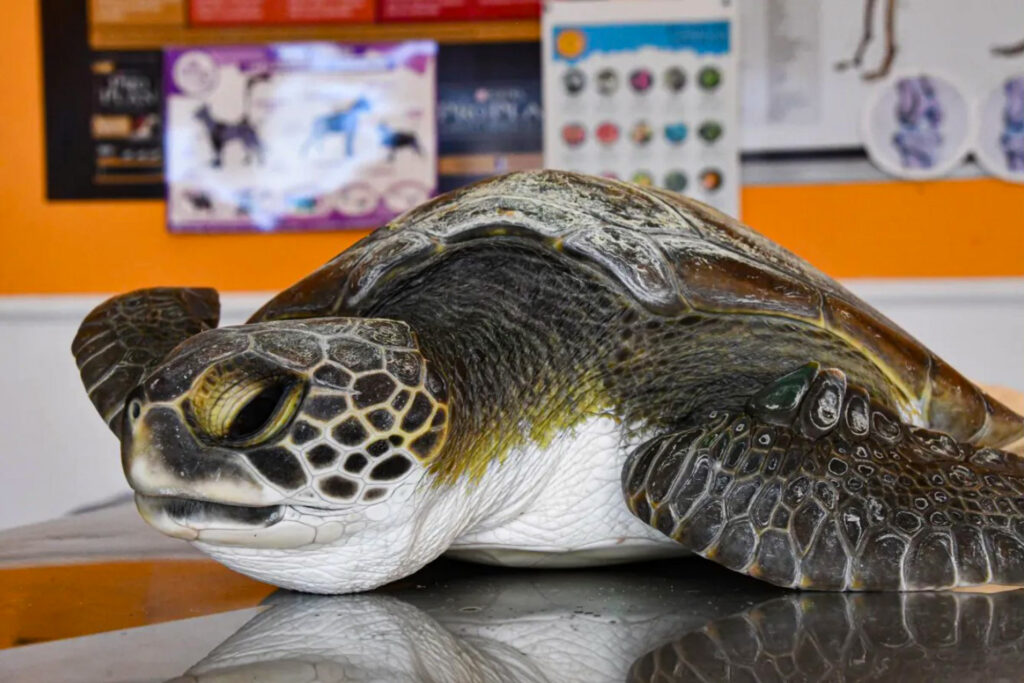
The turtles’ return to the wild was carried out in front of a small crowd of onlookers, who filmed as the animals were carried down to the water and released into the waves.
Karina Alvarez, biologist and head of Conservation at the Mundo Marino Foundation, told Newsflash in a statement: “Here, it is important to recognise the commitment and responsibility of the fishermen, who, when these reptiles are found, are in charge of providing them with first aid and bringing them to a specialised rescue centre.
“They are animals that are in a vulnerable state and, in addition to corroborating their health status in our centre, we can obtain information about the species that contributes to the research projects that we carry out. Unfortunately, in this case, in addition, some of them expelled garbage, something that is very recurrent and that we see repeated year after year.”
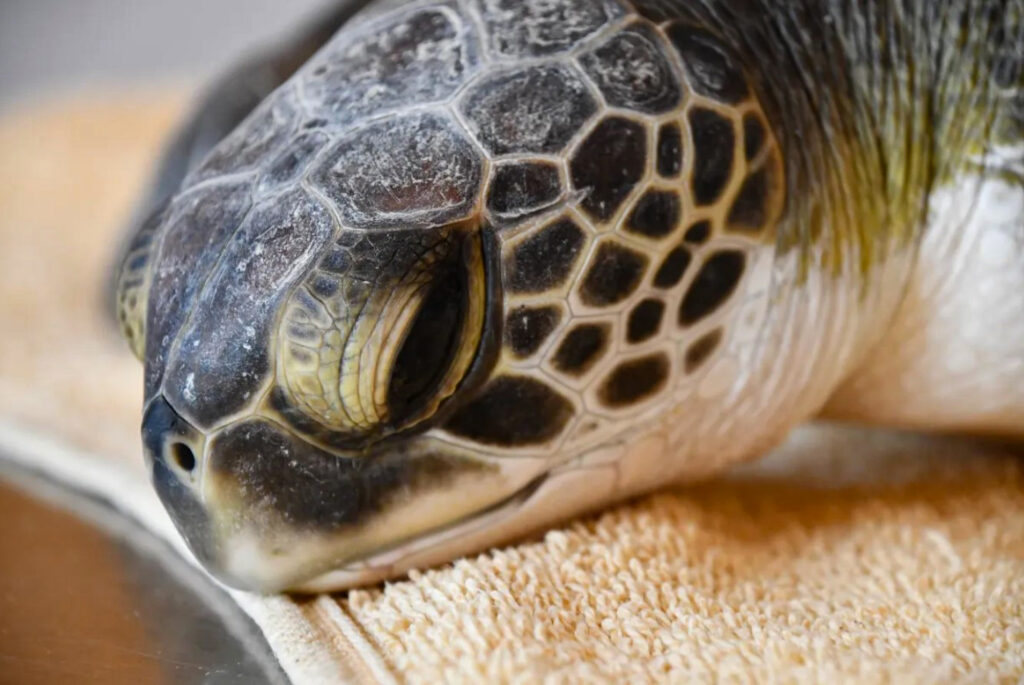
Juan Pablo Loureiro, a veterinarian and technical director of the Mundo Marino Foundation, said: “The importance of eliminating plastic has to do with avoiding both an obstruction and an intestinal perforation. In addition, in the case of obstructions, since these reptiles cannot evacuate well, an accumulation of gas is generated in the digestive tract that does not allow them to immerse themselves or dive correctly. Faced with this scenario, they have difficulties both feeding themselves and migrating to warmer waters.”
The loggerhead turtle is a species that, according to the International Union for Conservation of Nature (IUCN), is ‘vulnerable’.
The experts said that they believed the green turtle that arrived in Argentine waters had come from the volcanic Ascension Island, which is a British Overseas Territory and houses the second-largest population in the Atlantic Ocean. It is classified by the IUCN as ‘endangered’.

